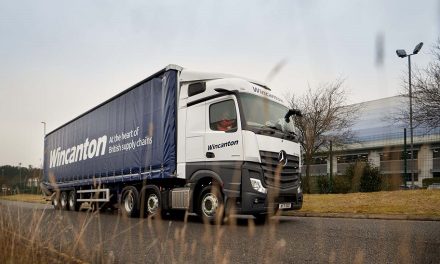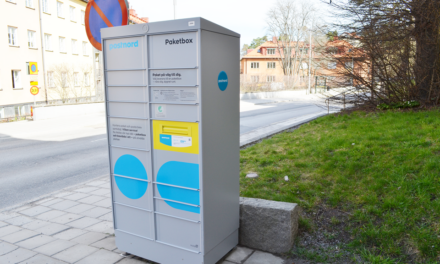
Peter Bakker – Where the streets have no name, this Dutchman is aiming to deliver our post
Many chief executives like to impress their staff with big gestures. At senior management conferences, they have been known to employ comedians as warm-up acts, make top executives perform a play in front of their colleagues, or even " as in a famous event involving former Shell boss Sir Philip Watts " dress up in a space suit.
But Peter Bakker, the chief executive of mail and logistics giant TNT, can beat them all. At a get-together of senior managers earlier this year, his guest speaker was Bono.
The 44-year-old Dutchman seems almost nonchalant when he discusses the U2 lead singer's performance. 'He spoke about poverty.'
The chain of events that led Bono to TNT goes back nine years " to when TPG Post, the privatised Dutch postal service, bought Australian logistics group TNT. TPG had realised that competition would be eating into its market " in Holland the mail was privatised in 1989 and deregulated not long after, and Bakker reckons his core postal business at home shrinks by 2 to 3 per cent every year even without competition. So the group opted to expand its way out of trouble, and the TNT purchase looked a good route.
It was also good for Bakker, who as one of the architects of the deal, rose to be finance director. 'I was one of the few who realised what we were getting involved in.'
In 2001, TPG's parent company, the telecoms group KPN, ran into trouble and its chief executive, Ad Scheepbouwer, was sent to KPN to sort it out. Bakker took his post.
Then only 40, he was seen as pretty young to take on such a crucial role. ('I shave off the grey hairs,' he jokes.) One of the issues was the low profile of the company. Sponsoring Formula 1 was considered a way of getting the name known, but Bakker went a completely different route.
Having finally cut the ties with KPN last year, he rebranded the company from TPG to TNT " plastering its famous orange logo over all the businesses outside Holland. 'If you go down a street in London and say TPG, no one will know what you are talking about,' he argues. 'But if you say TNT then everyone responds: 'Yes, OK.' ' He adds: 'Our royal family is the House of Orange and our football team plays in Orange.'
Prior to that, he had turned the company away from sports sponsorship " with the exception of Belgian football club Standard Liege, which is on the flight path of a massive TNT distribution operation " and struck a deal with the World Food Programme, giving free logistical assistance to help get food to starving people.
'We are beneficiaries of globalisation " all these products have to be shipped around the world,' says Bakker. 'The big problems in the world are hunger and Aids, and despite globalisation we don't deal with them that well. So if we claim to be the best logistics company in the world, why can't we help?'
The move has been a success, both inside the group and out. And it brought him into contact with the U2 singer: 'Bono uses his fame to bring attention to world hunger. We use our logistics to try to solve some of the problems. That's how we met.'
When he is not trying to feed the world, Bakker is busy turning the European postal market on its head. Under an EU directive, agreed in 2001, all the member states have to review competition in their markets by the end of next year, and open them up shortly afterwards. Sweden, Germany, Holland and the UK are leading the way, with the southern European countries expected to fall into line by 2009.
For the incumbent postal services " in the UK's case, the Royal Mail " this is bad news. Bakker reckons that in every country at least two new postal networks will spring up, each taking 10 to 15 per cent of the market. If the worst happens, Royal Mail could lose a third of its business.
Bakker knows all about competition. In Holland he already has two rivals " one backed by the mighty Deutsche Post, which said last week that it was in talks to buy Exel Logistics " and his group has had to cut nearly a third of its home workforce.
In metropolitan centres, such as Amsterdam and Rotterdam, it is full- on competition. In the rural areas it is more subtle: the rivals either strike a deal with TNT to deliver their mail after dropping it off at local sorting offices, or they deliver just two days a week.
Using this experience, Bakker is expanding TNT's mail operation rapidly, and the UK is a top, and so far lucrative, target. A year ago, TNT tied up its first contract " with BSkyB " to get mailshots to the satellite TV company's millions of customers. TNT guarantees 48-hour delivery for less than second-class postage.
Since then, it has signed up more than 30 clients, including Barclays, Lloyds TSB and, most recently, npower. Bakker's target is to take up more than twice the 100 million pieces of mail that the company expects to lose to competitors in Holland this year.
Using a turn of phrase that Royal Mail chairman Allan Leighton will not find charming, Bakker says TNT will have 'stolen over 700 million pieces from Royal Mail' in its first year of direct competition, so it is well ahead of schedule.
The UK market is unusual in Europe in that it is still growing, thanks in part to the huge volumes of junk mail sent out every year, he points out. But the trend worldwide is for this to peak, with junk being replaced by electronic mailshots. Bakker predicts problems for Royal Mail as the market starts to decline and competitors eat into its lucrative business- to-consumer and business- to-business markets.
Soon, TNT will start sorting the mail and it is looking for a way in which it can make delivering it work. TNT struck a joint venture with Express Dairies last year, but this is unlikely to offer a complete solution. 'We need to develop a position where we own our own network " maybe acquiring something " or start our own greenfield network,' says Bakker. This would mean hiring thousands of its own postmen and women.
Acquiring Exel Logistics, a big rival to TNT, is not on the cards, even if it is in play after Deutsche Post's approach. Bakker says he will not comment on potential bids, before adding: 'It would be a difficult transaction to complete.'
As Bono might say: 'I still can't find what I'm looking for.' But Bakker isn't concerned. It is Royal Mail that had better watch out.
BIOGRAPHY
Peter Bakker
Born: 1961.
Education: degree in economics from Erasmus University, Rotterdam.
Career (1991): joins TPG Post.
1996: financial control director.
1998: chief financial officer.
2001: chief executive officer.
2005: group renamed TNT.













